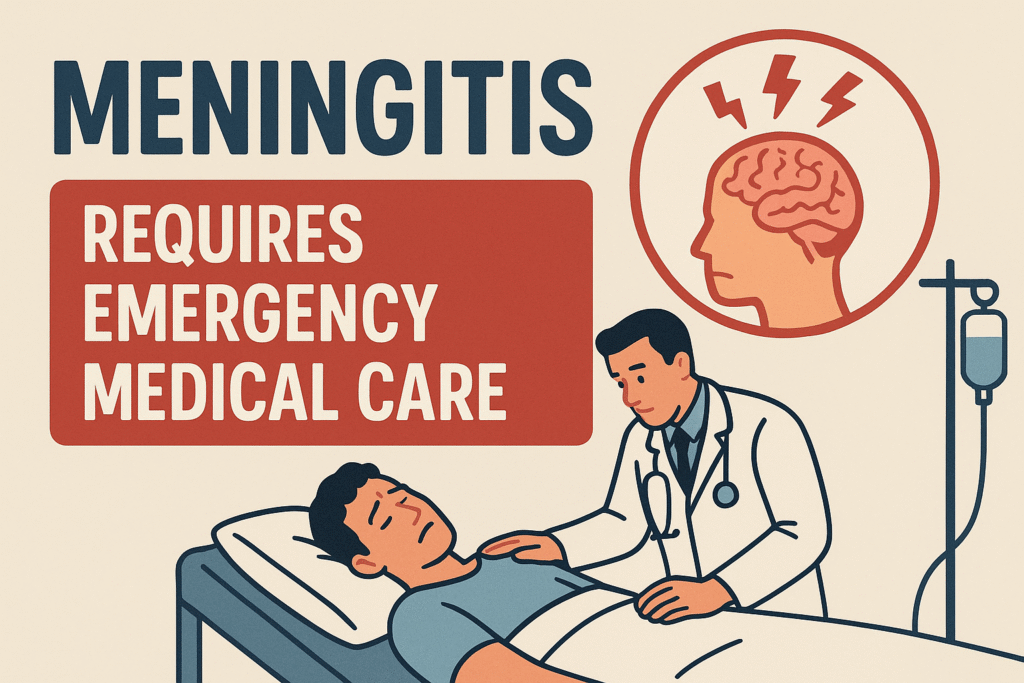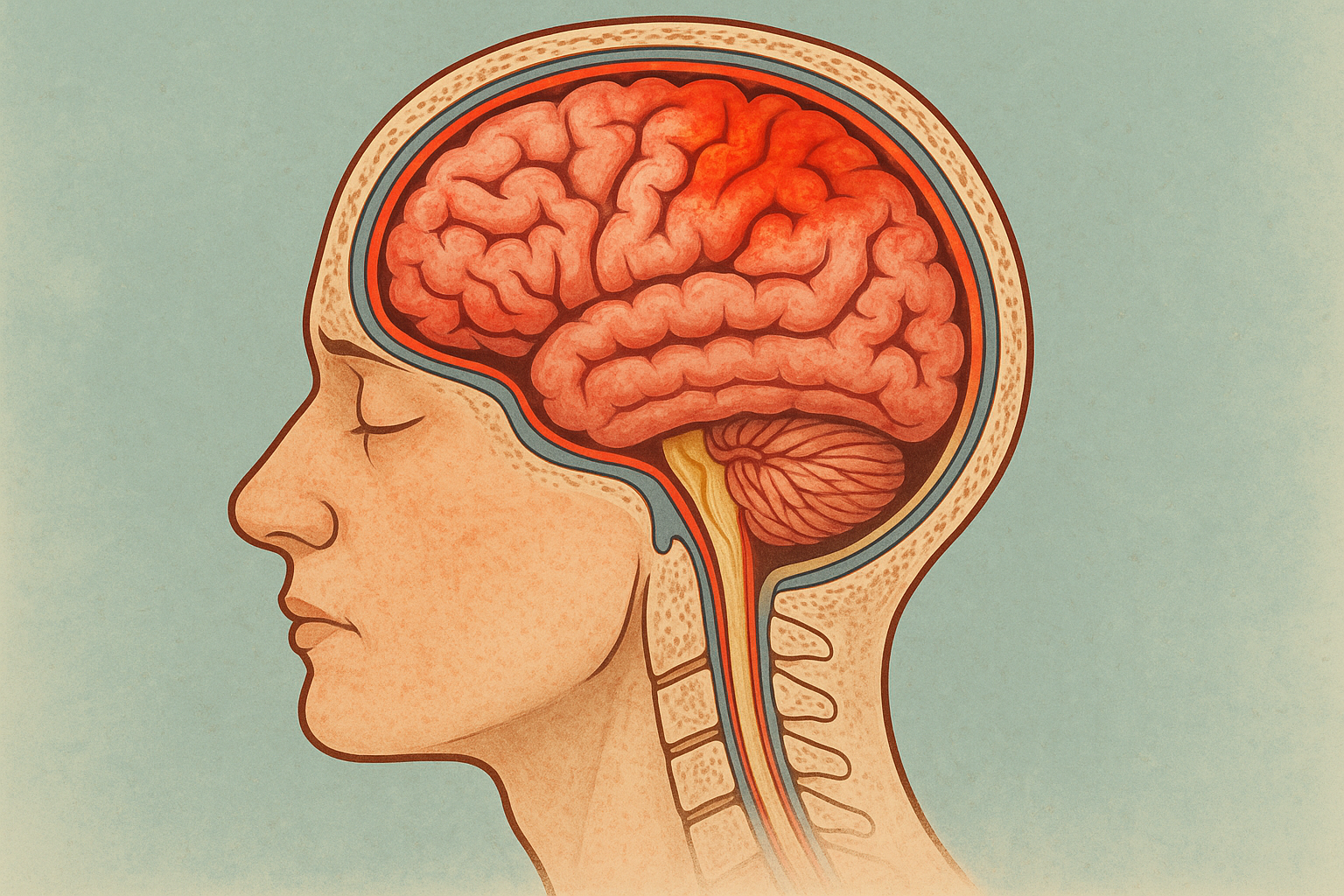Meningitis is an infection of the protective membranes (meninges) surrounding the brain and spinal cord. The condition is less common than flu or pneumonia but is extremely serious because it can progress rapidly and may be fatal if not treated quickly. Even survivors may face long-term complications such as hearing loss or brain damage.
Causes and Types of Meningitis
Meningitis can be caused by different type of pathogens:
- Bacterial meningitis – The most severe form. Can be life-threatening without urgent treatment.
- Viral meningitis – More common and usually less severe, but still requires monitoring.
- Fungal meningitis – Rare, mostly affecting people with weakened immune systems.
- Parasitic and non-infectious meningitis – Less common causes include autoimmune conditions or cancer.
Symptoms of Meningitis
Early recognition is critical. Common symptoms include:
- Sudden high fever
- Severe headache
- Stiff neck
- Sensitivity to light (photophobia)
- Nausea and vomiting
- Confusion or difficulty concentrating
- Seizures
- Rash (in some bacterial meningitis cases)
Meningitis can progress very quickly. If these symptoms appear suddenly, seek medical care immediately.
Diagnosis and Testing
Doctors confirm meningitis using:
- Physical exam for stiffness, rash, or neurological signs.
- Lumbar puncture (spinal tap): Testing cerebrospinal fluid for infection.
- Blood cultures and imaging (CT or MRI) to check severity and cause.
Treatment and Management
Treatment depends on the cause:
- Bacterial meningitis: Requires urgent hospitalization and intravenous antibiotics. Sometimes corticosteroids are used to reduce brain swelling.
- Viral meningitis: Often resolves on its own, with supportive care (rest, fluids, pain relief).
- Fungal meningitis: Treated with antifungal medicines.
Quick treatment is vital—delays can lead to life-threatening complications.

Prevention of Meningitis
Prevention focuses on vaccination and healthy habits;
- Vaccines are available for several bacterial types, including meningococcal, pneumococcal, and Hib vaccines.
- Good hygiene (handwashing, not sharing drinks or utensils).
- Healthy immune system through good nutrition, sleep, and avoiding smoking.
When to See a Doctor
Seek immediate medical help if you or your child experiences:
- Sudden fever with stiff neck
- Severe headache and vomiting
- Unexplained rash with fever
- Rapidly worsening symptoms after a cold or flu-like illness
Meningitis requires emergency medical care! Meningitis is rare compared to other infections, but its speed and severity make it one of the most feared diseases
Disclaimer: This article is for informational purposes only. It is not a substitute for professional medical advice, diagnosis, or treatment. Always consult a qualified healthcare provider with any health concerns.
Source:
National Institute of Neurological Disorders and Stroke (NINDS)
You may also interested in Hiv/Aids-symptoms causes and treatment


[…] You may also interested in Meningitis: symptoms,causes and why its so concerning […]